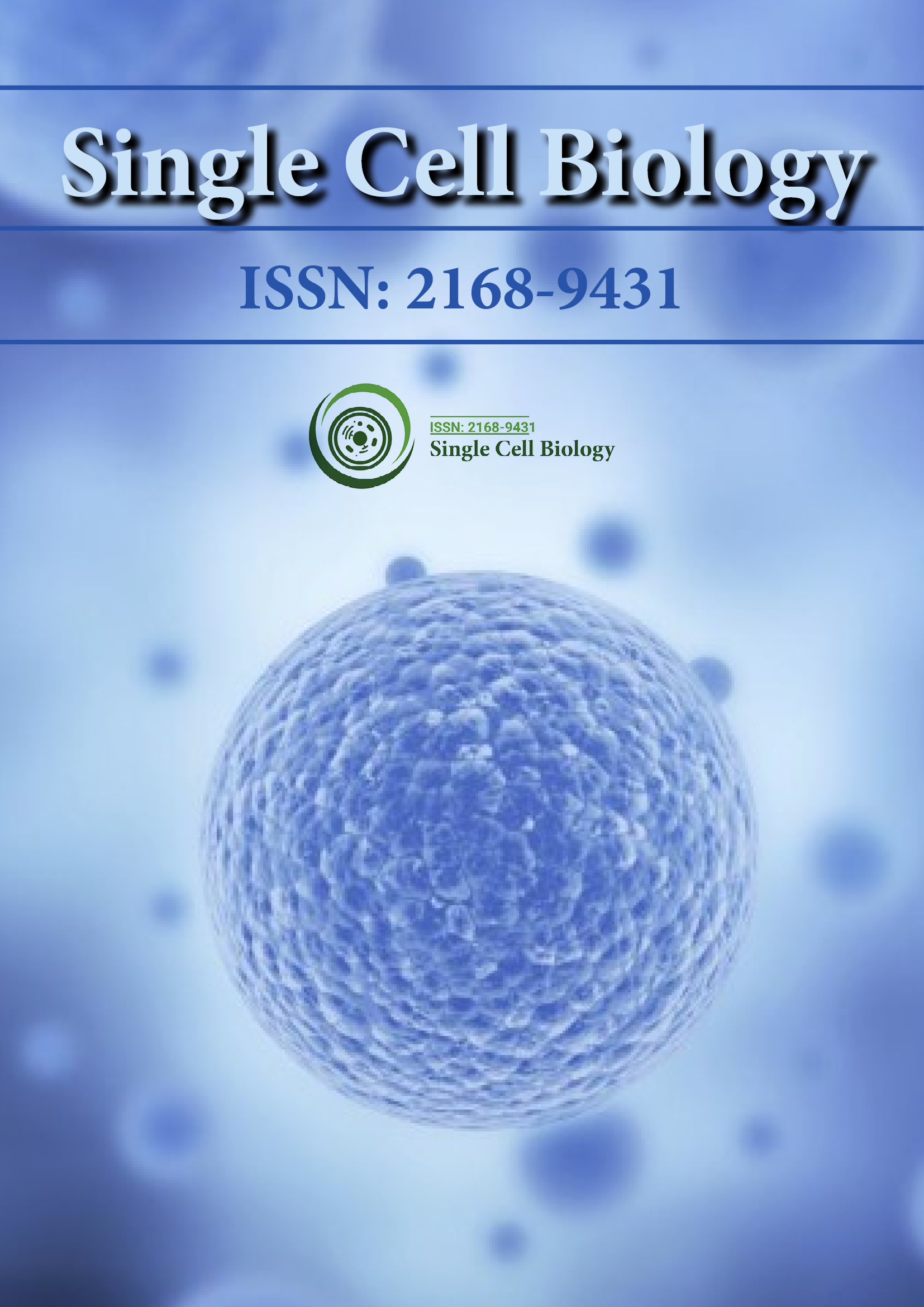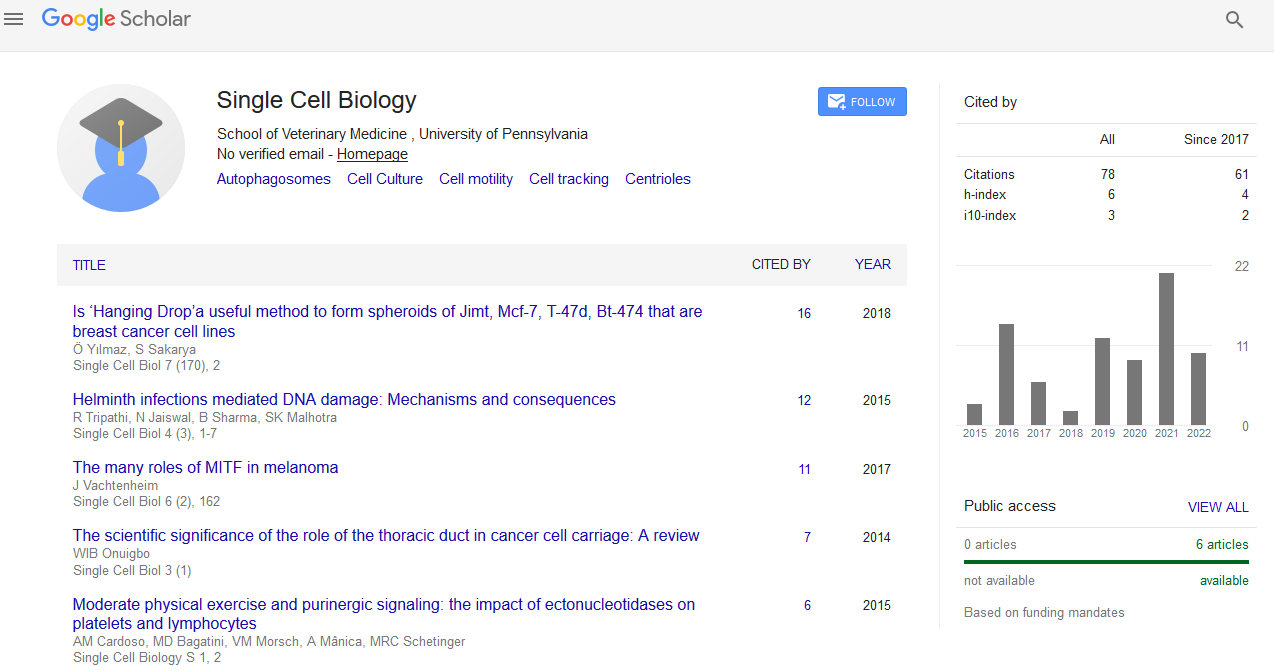PMC/PubMed Indexed Articles
Indexed In
- ResearchBible
- CiteFactor
- RefSeek
- Hamdard University
- EBSCO A-Z
- Publons
- Geneva Foundation for Medical Education and Research
- Euro Pub
- Google Scholar
Useful Links
Share This Page
Journal Flyer

Open Access Journals
- Agri and Aquaculture
- Biochemistry
- Bioinformatics & Systems Biology
- Business & Management
- Chemistry
- Clinical Sciences
- Engineering
- Food & Nutrition
- General Science
- Genetics & Molecular Biology
- Immunology & Microbiology
- Medical Sciences
- Neuroscience & Psychology
- Nursing & Health Care
- Pharmaceutical Sciences
Abstract
The Role of Nitric Oxide in Cancer Cell DNA Repair, Hypoxia Adaptation and Drug Resistance
Lizhi Liu and Weiming Xu
Nitric oxide (NO) has been widely characterized as an important signalling molecule in many biological systems. To study the role of NO in human breast cancer cells, we have developed tetracycline-inducible breast cancer cell MCF7 and co-culture systems in the breast cancer ZR75 cells. We have applied a functional genomic approach using micro arrays and antibody-based proteomic methods to study effects of NO in these cells. We found that many DNA-repair genes appear up-regulated including DNA-Pkcs, topoisomerase 2, and Rad 2. Some oncogenes and tumour suppressor genes also appear up regulated, such as Ret/Ptc2 and c-Yes-1. In accompanied with respiration inhibition, some of the hypoxia regulated genes; such HIF-α and GRP78 are also up-regulated. These different targets could contribute different effects in cancer cell DNA repair, hypoxia adaptation and drug resistance, leading us to develop the therapeutic intervention against cancer.

